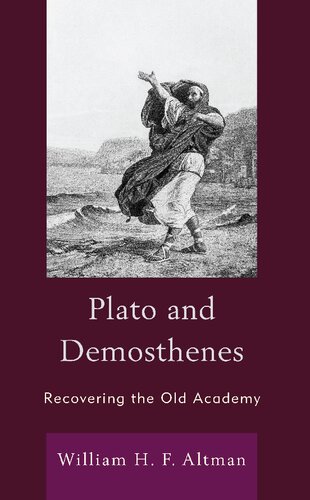

Most ebook files are in PDF format, so you can easily read them using various software such as Foxit Reader or directly on the Google Chrome browser.
Some ebook files are released by publishers in other formats such as .awz, .mobi, .epub, .fb2, etc. You may need to install specific software to read these formats on mobile/PC, such as Calibre.
Please read the tutorial at this link: https://ebookbell.com/faq
We offer FREE conversion to the popular formats you request; however, this may take some time. Therefore, right after payment, please email us, and we will try to provide the service as quickly as possible.
For some exceptional file formats or broken links (if any), please refrain from opening any disputes. Instead, email us first, and we will try to assist within a maximum of 6 hours.
EbookBell Team

4.4
52 reviewsUniversally regarded as Plato’s student in antiquity, it is the eloquent and patriotic orator Demosthenes—not the pro-Macedonian Aristotle who tutored Alexander the Great—who returned to the dangerous Cave of political life, and thus makes it possible to recover the Old Academy. In Plato and Demosthenes: Recovering the Old Academy, William H. F. Altman explores how Demosthenes—along with Phocion, Lycurgus, and Hyperides—add external and historical evidence for the hypothesis that Plato’s brilliant and challenging dialogues constituted the Academy’s original curriculum. Altman rejects the facile view that the eloquent Plato, a master speech-writer as well as the proponent of the transcendent and post-eudaemonist Idea of the Good, was rhetoric’s enemy. He shows how Demosthenes acquired the discipline necessary to become a great orator, first by shouting at the sea and then by summoning the Athenians to self-sacrifice in defense of their waning freedom. Demosthenes thus proved Socrates’ criticism of democracy and the democratic man wrong, just as Plato the Teacher had intended that his best students would, and as he continues to challenge us to do today.